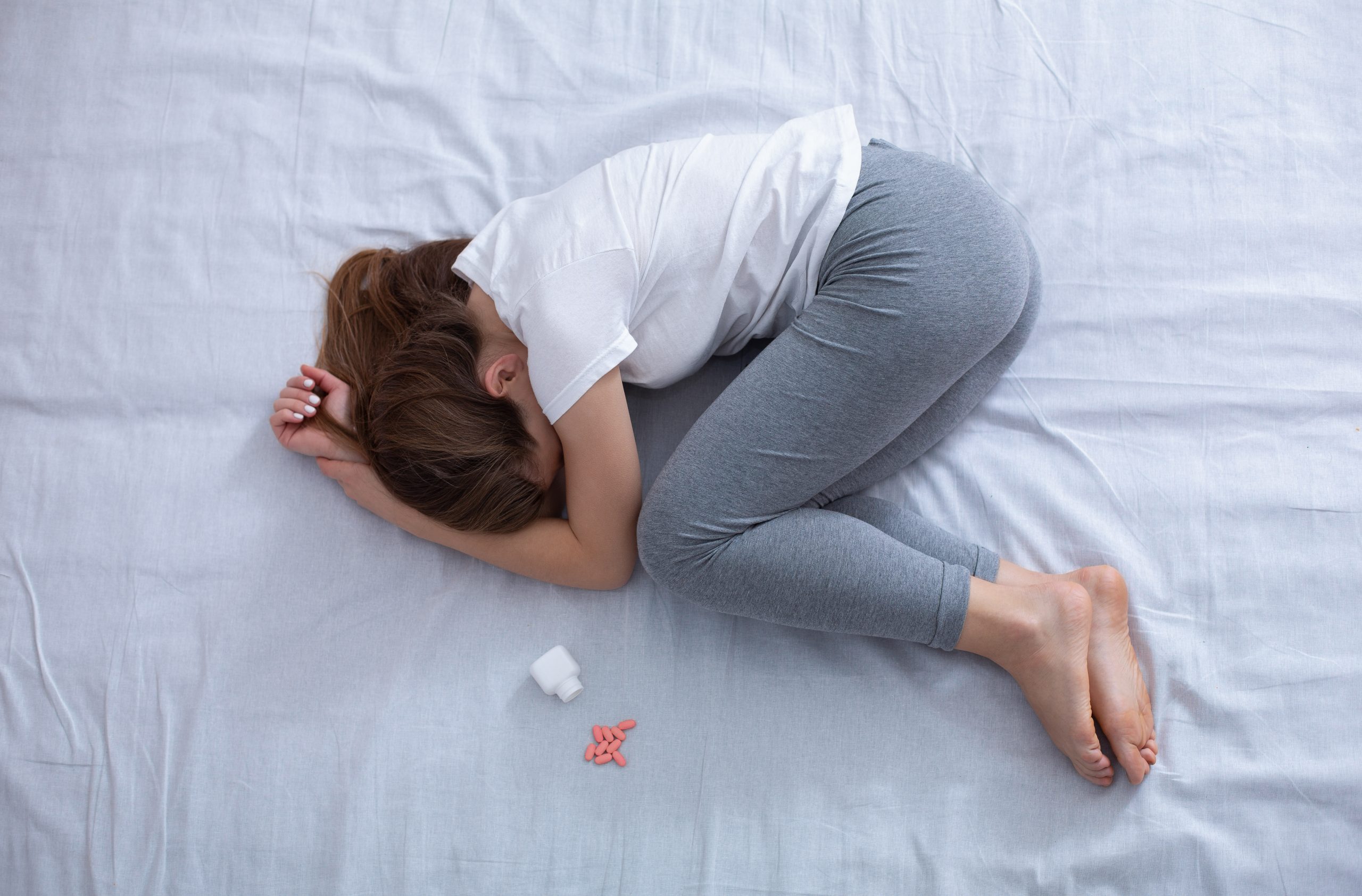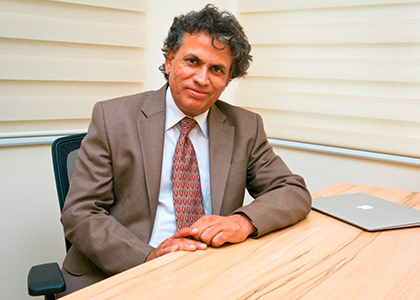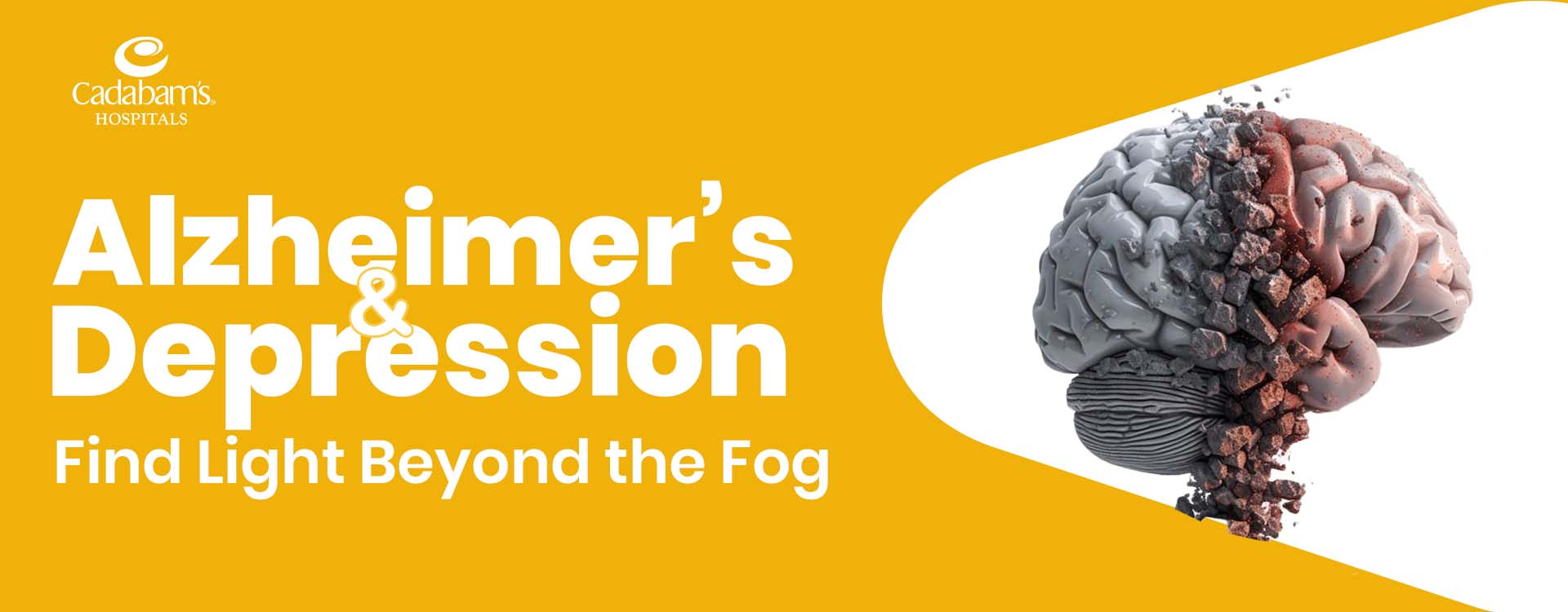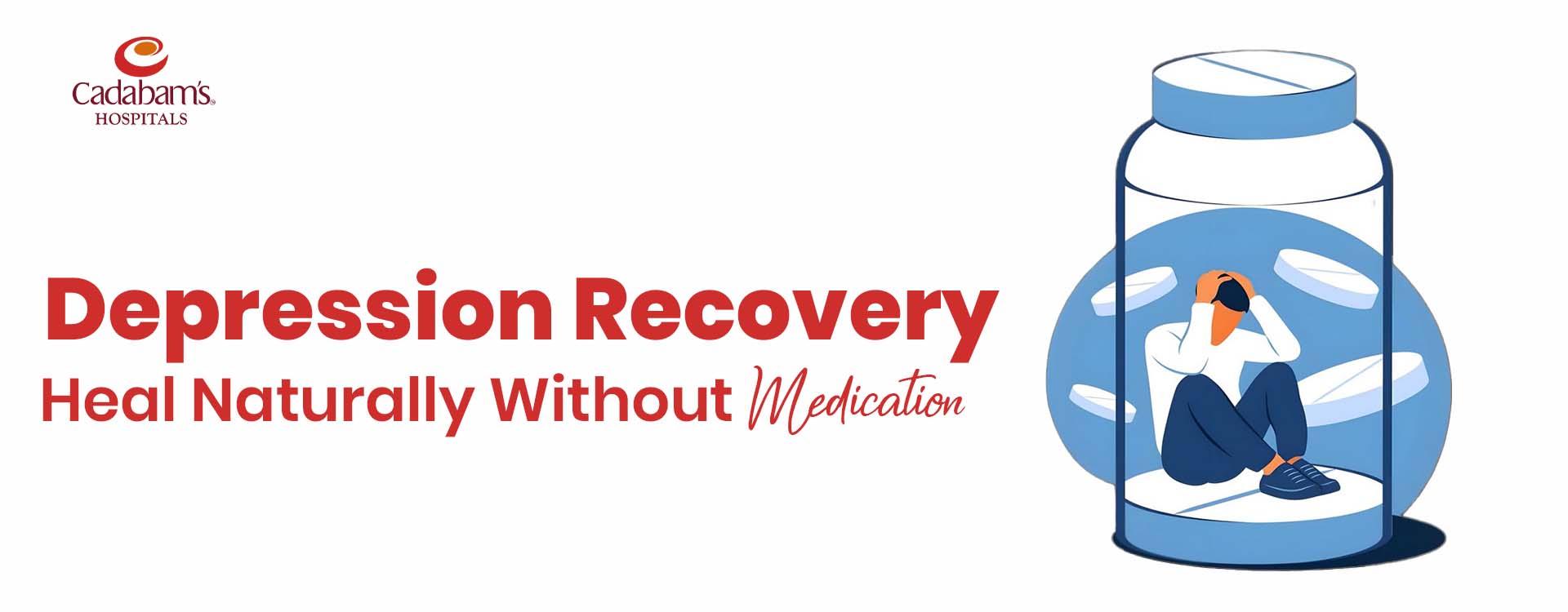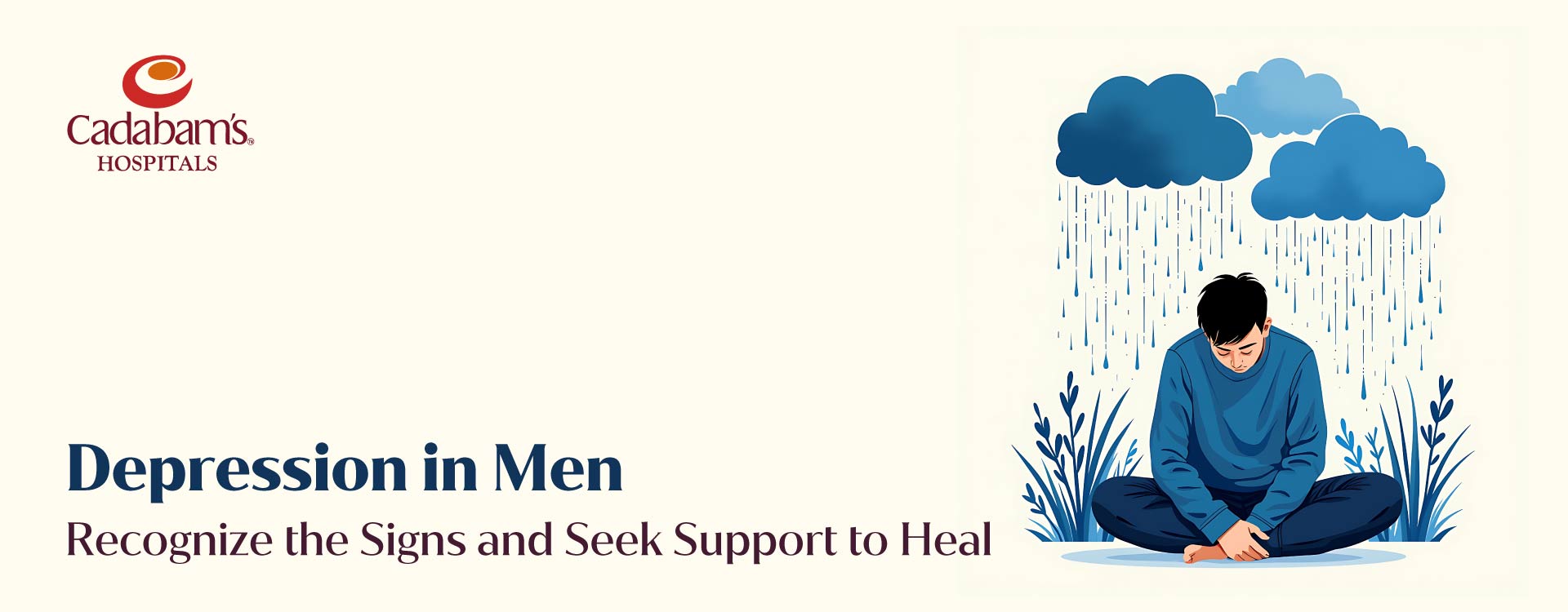How tDCS Works: The Science Behind the Stimulation
Slight electrical currents are applied to the brain areas responsible for sustenance and mood using tDCS. These slight currents are known to alter the neuronal activity and aid in restoration of the balance in the brain functions.
Such modulation of the neural pathways enhances the connectivity between the brain regions, relieving depression and promoting well-being.
Why is tDCS Used?
Depression stems from activity imbalances in the brain. tDCS aids by applying stimulation to parts of the brain that are known to be underactive and assist in the regulation of mood.
Its non-invasive nature along with some side effects unlike medications allows use in all treatment settings easing mild or moderate depression.
Looking for trusted psychiatrists in Bangalore? Cadabam’s Hospitals delivers expert, tailored care for a wide range of psychiatric conditions.
Benefits of tDCS for Depression
Apart from depression alleviation, tDCS improves mood and supports long term recovery. It is a safe option due to its non-invasive nature and provides cognitive and emotion benefits unlike any other medication.
Enhancing Neuroplasticity and Recovery
tDCS promotes plasticity of the brain, enabling it to create new, healthier neural pathways and therefore more adaptable. By improving emotional response and resilience, it helps individuals respond better to other depression treatments, such as lifestyle changes, psychotherapy, and so forth.
Reducing Symptoms of Depression
By stimulating certain regions of the brain, tension and sadness is alleviated through the regulation of mood, providing balance between emotions. For individuals who struggle with traditional treatment, it serves as an effective non-pharmaceutical option to improve general wellbeing.
Improving Cognitive Function
Individuals with depression often struggle with memory, focus, or even making basic decisions. By targeting brain areas associated with paying attention and problem-solving, depression can be managed, simultaneously improving daily life engagement for work or personal tasks.
Accelerating Rehabilitation for Depression
tDCS is important for depressed individuals recovering from depression because it accelerates tDCS recovery by stimulating the neural pathways involved in mood regulation. In addition, it enhances the individual’s ability to use neuroplasticity to heal on cognitive and emotional levels, so they regain motivation, energy, and clarity faster than traditional methods.
Minimising Medication Dependence
tDCS does not use any drugs while treating depression because it directly modulates brain activity. This can help alleviate the dependency on antidepressants, lessening the side effects of drowsiness, weight gain, or emotional blunting. For those trying to avoid heavy treatments, tDCS is helpful for managing symptoms while reducing medication dependency.
Enhancing Mood and Mental Well-being
tDCS can help reduce symptoms of anxiety and depression by stimulating the brain areas that are primarily responsible for modulation. It helps with emotional stability as well as enhancing overall sense of well-being and reducing stress. Many individuals report improved motivation, better emotional resilience, and a greater ability to engage. \
Prolonging Therapeutic Effects
Some sources claim that tDCS can improve mood and cognitive capabilities even after the treatment period. It reinforces positive neural changes and helps with emotional stability. Regular sessions combined with lifestyle changes or therapy can improve long-term outcomes in the case of depressive individuals.
Psychologists in Bangalore at Cadabam’s Hospitals deliver expert, individualized care for a wide range of mental health conditions.
Treatment Accessibility
tDCS is a non-invasive and portable form of treatment which can be used in clinical settings or at home under a specialist’s supervision. This factor favours people in outlying regions or those who cannot undergo invasive procedures, ensuring a greater portion of the population benefits from depression treatment.
tDCS Treatment Process for Depression
When using tDCS treatment for depression, electrical currents are passed through specific areas of the brain to better regulate mood. Sessions are short, painless, and performed by a professional which makes it a safe and effective option to manage depressive symptoms.
What to Expect During tDCS Sessions
During a tDCS session, electrodes are attached to the head so that mild stimulation can be applied. Individuals report feeling slight tingling or warming sensations but no pain. These sessions will repeat over several weeks and last around 20-30 minutes. Gradually, this helps improves mood, reduce symptoms, and increases mental well-being.
Setting Up for tDCS: Equipment and Procedure
A stimulator device, electrodes, and a headband are needed to secure electrodes in place for tDCS treatment. A trained professional decides the positioning of the electrodes based on the individual’s individual needs. The device sends electrical currents to specific areas with low activity in the brain, improving performance. The sessions are painless and can be performed in clinics or at home under professional supervision.
Our team of skilled therapists in Bangalore are trained to offer compassionate, evidence-based therapy.
Choosing the Right tDCS Provider for Depression in Bangalore
To find a trustworthy tDCS provider, it’s important to look for their clinical experience, safety measures, and reviews. Look for certified professionals that have treated depression. Make sure they provide individualised treatment plans, adequate supervision, and have a results-oriented methodology.
Accreditation and Licensing
Check for clinic accreditation and licensure as these components give tDCS clinics national healthcare compliance standards for safety and quality. Proper accreditation ensures that individuals receive treatment from trained professionals and governed protocol, thus mitigating risks while managing depression effectively.
Experience and Specialisation
It is vital to check if the provider specialises in tDCS for depression. Special professionals know how to optimally place electrodes, the intensity of stimulation, and how frequent sessions should be, which gives better results. This expertise enables the use of safe, tailored, and evidence-based methods.
Technology and Equipment
Treatment effectiveness will be enhanced using advanced and well-maintained tDCS equipment. Clinics should use certified, FDA approved, or CE marked devices for safety and reliability. Stimulation can be more comfortable and precise with modern technology which renders improving results while minimising discomfort important to verify equipment quality before starting treatment.
Treatment Customisation
Personalised tDCS treatment for specific symptoms, their intensity, and the individual’s response to therapy is most effective. The brain stimulation doses combined with mood enhancing agents should greatly optimise side effects. Customisation greatly enhances the efficacy of the therapy in relation to the individual’s condition for long-term recovery.
Support Services
The support after the tDCS treatment is extremely crucial. Counselling clinics provide follow-up assessments, mental health support, and other resources to help individuals monitor their progress, and make necessary changes for more effective treatments. Having comprehensive care improves treatment adherence and success in the long-term.
Experienced counsellors in Bangalore at Cadabam’s Hospitals provide personalized support for a wide range of mental health concerns.
Why Choose Cadabams’ tDCS Treatment for Depression in Bangalore
In Cadabam’s Hospitals, individuals diagnosed with depression can get expert tDCS treatment with advanced technology that guarantees safety and individualised care. Holistic support enables lasting recovery and better mental health.
Expert Team Specialised in tDCS for Depression
Cadabam’s Hospitals, Bangalore has compassionately approached caring for individuals to facilitate long-term recovery and mental wellbeing. Our expertise guarantees precise treatment with effective symptom handling and individual safety which comes along with having to experience an extensive background in tDCS for depression.
State-of-the-Art Facilities and Supportive Environment for Depression
Our progressive infrastructure places us fundamentally in context for tDCS treatment. Using modern equipment set in a serene environment, we provide an optimal healing infrastructure. Our personnel are warm and supportive increasing individual comfort and contributing greatly to their mental wellness.
Incorporating Holistic Approaches in tDCS Treatment for Depression
As much as we concentrate on the tDCS component of the depression therapy, other elements like counselling, mindfulness, and lifestyle changes are also incorporated. By approaching the treatment from multiple angles, sustainable recovery and improvement throughout the individual’s life is achieved.
Assessment and Personalised Treatment Planning for Depression
A detailed assessment of every individual helps in customising a tDCS treatment plan designed specifically for them. With analysis in their symptoms, medical background, and their personal preferences, optimum brain stimulation alongside depression case conditioning can be integrated into treating depression.
Ongoing Support and Monitoring for Depression
Our staff monitors everyone’s progress, makes appropriate treatment modifications and offers emotional support to ensure that care provided facilitates progression in the individual’s mood, cognitive functions, and mental health long-term. Careful attention to detail is crucial for tDCS.
Take the First Step Toward Recovery
Ongoing support is key to lasting improvement. Our team is here to guide you every step of the way. Contact us today (contact:) to begin your journey toward better mental health with expert tDCS treatment.
Top Depression Doctors at Cadabam’s Hospitals
Depression – Counsellor in Hyderabad| Depression – Psychiatrist in Hyderabad| Depression – Psychologist in Hyderabad| Depression – Psychologist in Bangalore| Depression – Therapist in Hyderabad
Rehabilitation Centres For Drug Addiction at Cadabam’s Hospital
Depression Rehab in Hyderabad | Depression Rehab in Bangalore
Best Depression Treatments Offered at Cadabams
RTMS Bangalore | ECT Therapy Bangalore | Group Therapy Bangalore | Group Therapy Hyderabad | Biofeedback Bangalore | Neurofeedback Bangalore | Family Therapy Bangalore | RTMS Hyderabad | Online Counselling Bangalore | Online Counselling Hyderabad | ECT Hyderabad | Home Care Hyderabad | PsychoTherapy Bangalore | Biofeedback Hyderabad | CBT Hyderabad | Family Therapy Hyderabad | PsychoTherapy Hyderabad | REBT Bangalore | REBT Hyderabad | Emergency Bangalore | Emergency Hyderabad | CBT Bangalore | Direct Cranial Stimulation Hyderabad | Home Services Bangalore | Post Rehab Care Hyderabad | Post Rehabilitation Care Bangalore
More Additional Resources About Depression
Postpartum Depression Signs and Symptoms in Men(And Treatments)| Everything you need to know about Childhood Depression| ADHD & Depression: Connection, Causes, Risk & Treatment| Manic Depression Treatment for Bipolar Disorder
FAQ
What is tDCS and how does it help treat Depression?
tDCS is a technique used to stimulate the brain for treating mood and cognitive functioning which helps in the case of depression by improving the plasticity of the brain as well as emotional processing.
How many tDCS sessions are typically needed for Depression?
The range tends to differ from person to person, but the average treatment plan is somewhere between 10 to 20 sessions over the span of a few weeks. The exact pacing of the sessions varies from case to case, depending on how responsive the individual is in relation to the severity of their depression.
How long does it take to see results from tDCS treatment for Depression?
The nature of the results extremely depends on the individual but it’s not uncommon for some individuals to see results after weeks or some sessions. These results highly rely on the person’s level of devotion to the treatment, the severity of symptoms and the likelihood of other therapies being taken.
What kind of support does Cadabam’s offer to individuals undergoing tDCS for Depression?
Cadabam’s ensures the best possible results by providing expert supervision, personalised treatment plans, psychological counselling aid and constant monitoring of progression. This multidisciplinary approach helps to maintain long-term mental health balance.
Is tDCS expensive?
While it’s true that tDCS is cheaper than more invasive physical treatments tDCS can get expensive as well, depending on the frequency of the sessions with a specific provider. Cadabam’s Hospitals and many other clinics offer low barrier pricing, so they are accessible to a wider range of clients.














 Available
Available
